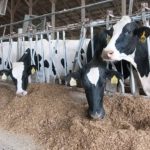
Australian dairy company, Norco, commissioned a study that reveals that the top three factors affecting farmers’ mental health are weather or natural disasters (47%), financial stress (36%) and inflation and cost pressures (35%).
In addition to weather and financial stress, environmental policies that decimate their productive capacities, production costs that are rising almost irrevocably, and to top it all off, a world of consumers feeling that they are the enemies of the planet to fight, are ingredients that add up to an explosive cocktail.
Dairy farmers around the world can be similar culturally and sociologically, as their work does not start when they arrive at the office at 8 o’clock and stay there when they close the door at 6 o’clock, Monday to Friday: producing food is a way of life, and the issues that affect them at work affect their entire lifestyle.
Threats can come from livestock diseases, economic losses, public regulations that make the task more and more difficult, difficulties in accessing, maintaining or repairing machinery, or bad weather.
Continuous hopelessness has consequences, depression is one of them, and if it becomes prolonged and unchecked it is not only a total loss of quality of life, but in extreme cases can lead to suicide.
Nearly half of Australian farmers (45%) have had thoughts of self-harm or suicide, nearly a third (30%) have attempted self-harm or suicide. In addition, one farmer commits suicide every 10 days.
Farmers are tough and resilient, here and around the world, and a mental health problem, as underestimated as stress or depression, can be difficult to identify and assess when there is so much to do to fix these things.
What are we doing to protect our own? Do we have a containment program in place? What are we waiting for?
The things we can control:
The ability to manage stress is key, and feeling like we can’t control the factors that generate it puts us in a downward spiral, so:
- Don’t suffer alone. Talk. Generate exchange with people who may be able to recognize the signs of depression, work as a team in seeking professional help.
- You who work from dawn to dusk to feed the world, pay attention to eat healthy, exercise, get enough sleep and sleep well.
- Don’t stop seeing your friends.
- Practice your faith.
- Take care of your family and lean on them.
Denying grief or letting it go is not the best idea. Sure, we’re not going to fix the world in one conversation, or change politics or make it rain or stop raining, but we can change the way we feel and act about it.
It is not enough to come together to solve the practical. We must also come together to take care of ourselves.




















